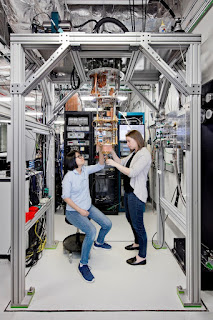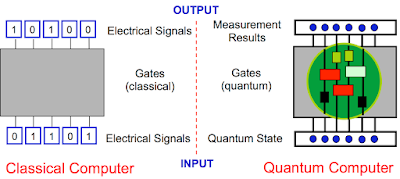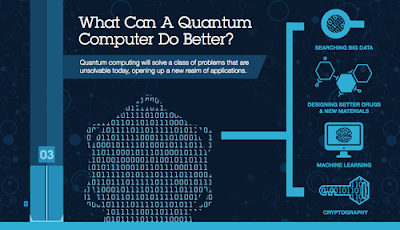Twitter Feed
Leading Federal Integrators Address Tactical Cloud Computing
Yesterday during the first annual Government IT Conference and Expo, tactical cloud computing was cited as a critical component within this new paradigm. Joining me to address the issue were:…
Carpathia Creates Government Solutions Business Unit
In a strong statement of focus, Carpathia Hosting has announced the formation of Carpathia Government Solutions, a unit dedicated to providing solutions specifically for federal civilian and defense agencies. This…
INPUT FedFocus 2010
Please join me at the 7th Annual FedFocus Conference, November 5, 2009, at the Ritz Carlton in McLean, VA. This conference has been designed to provide crucial information on upcoming…
Dataline, Lockheed Martin, SAIC, Unisys on Tactical Cloud Computing
I’m proud to announce that representatives from Lockheed Martin, SAIC, and Unisys will join me in a Tactical Cloud Computing “Power Panel” at SYS-CON’s 1st Annual Government IT Conference &…
GSA, DoD and NCOIC to Collaborate on Government Cloud Computing
Yesterday, during the NCOIC Cloud Computing Workshop, collaboration seemed to be the focus as Katie Lewin, GSA Cloud Computing Initiative Program manager, and Dan Risacher, DoD Cloud Computing Storefront project…
FederalNewsRadio Highlights Government Cloud Computing
Last week’s Apps.gov announcement was the latest steps in the government’s “at the quick step” march into cloud computing. FederalNewsRadio, a Washington metro area media fixture, highlighted the event with…
NCOIC Officially Launches Cloud Computing Working Group
On Wednesday, 9 September 2009 the Network Centric Operations Industry Consortium (NCOIC) Technical Council formally approved the creation of a Cloud Computing Working Group (CCWG). Organizationally this new working group…
1 Billion Mobile Cloud Computing Subscribers !!
Yes. That’s what I said! A recent EDL Consulting article cites the rising popularity of smartphones and other advanced mobile devices as the driving force behind a skyrocketing mobile cloud…
NCOIC Holding Full-Day Cloud Computing Workshop
The Network Centric Operations Industry Consortium will be holding an all day Cloud Computing Workshop on September 21, 2009 in Fairfax, VA. Open to the public, this workshop will focus…
Pentagon Reviews Unisys Stealth
According to a Newtworkworld.com article, the United States Joint Forces Command (USJFC) is currently evaluating Unisys Stealth technology at the Joint Transformation Command for Intelligence (JTC-I) in Suffolk, Virginia. “Unisys…
- The release of a new API (Application Program Interface) for the IBM Quantum Experience that enables developers and programmers to begin building interfaces between its existing five quantum bit (qubit) cloud-based quantum computer and classical computers, without needing a deep background in quantum physics.
- The release of an upgraded simulator on the IBM Quantum Experience that can model circuits with up to 20 qubits. In the first half of 2017, IBM plans to release a full SDK (Software Development Kit) on the IBM Quantum Experience for users to build simple quantum applications and software programs.
The IBM Quantum Experience enables anyone to connect to IBM’s quantum processor via the IBM Cloud, to run algorithms and experiments, work with the individual quantum bits, and explore tutorials and simulations around what might be possible with quantum computing. Since its launch less than a year ago, about 40,000 users have run over 275,000 experiments on the IBM Quantum Experience. It has become an enablement tool for scientists in over 100 countries and, to date, 15 third-party research papers have been posted to arXiv with five published in leading journals based on experiments run on the Quantum Experience.
 The broad availability of quantum computing capability could prove to be a significant blow to current data encryption practices. In 2015 the US National Security Agency actually advised US agencies and businesses to prepare for a time when the cryptography protecting virtually all e-mail, medical and financial records, and online transactions would be rendered obsolete by quantum computing. The US National Institute for Standards and Technology (NIST) is also running a competition to spur work on post-quantum algorithms.
The broad availability of quantum computing capability could prove to be a significant blow to current data encryption practices. In 2015 the US National Security Agency actually advised US agencies and businesses to prepare for a time when the cryptography protecting virtually all e-mail, medical and financial records, and online transactions would be rendered obsolete by quantum computing. The US National Institute for Standards and Technology (NIST) is also running a competition to spur work on post-quantum algorithms. - Drug and Materials Discovery: Untangling the complexity of molecular and chemical interactions leading to the discovery of new medicines and materials;
- Supply Chain & Logistics: Finding the optimal path across global systems of systems for ultra-efficient logistics and supply chains, such as optimizing fleet operations for deliveries during the holiday season;
- Financial Services: Finding new ways to model financial data and isolating key global risk factors to make better investments;
- Artificial Intelligence: Making facets of artificial intelligence such as machine learning much more powerful when data sets can be too big such as searching images or video; or
- Cloud Security: Making cloud computing more secure by using the laws of quantum physics to enhance private data safety.
This content is being syndicated through multiple channels. The opinions expressed are solely those of the author and do not represent the views of GovCloud Network, GovCloud Network Partners or any other corporation or organization.
( Thank you. If you enjoyed this article, get free updates by email or RSS – © Copyright Kevin L. Jackson 2017)
Cloud Computing
- CPUcoin Expands CPU/GPU Power Sharing with Cudo Ventures Enterprise Network Partnership
- CPUcoin Expands CPU/GPU Power Sharing with Cudo Ventures Enterprise Network Partnership
- Route1 Announces Q2 2019 Financial Results
- CPUcoin Expands CPU/GPU Power Sharing with Cudo Ventures Enterprise Network Partnership
- ChannelAdvisor to Present at the D.A. Davidson 18th Annual Technology Conference
Cybersecurity
- Route1 Announces Q2 2019 Financial Results
- FIRST US BANCSHARES, INC. DECLARES CASH DIVIDEND
- Business Continuity Management Planning Solution Market is Expected to Grow ~ US$ 1.6 Bn by the end of 2029 - PMR
- Atos delivers Quantum-Learning-as-a-Service to Xofia to enable artificial intelligence solutions
- New Ares IoT Botnet discovered on Android OS based Set-Top Boxes




